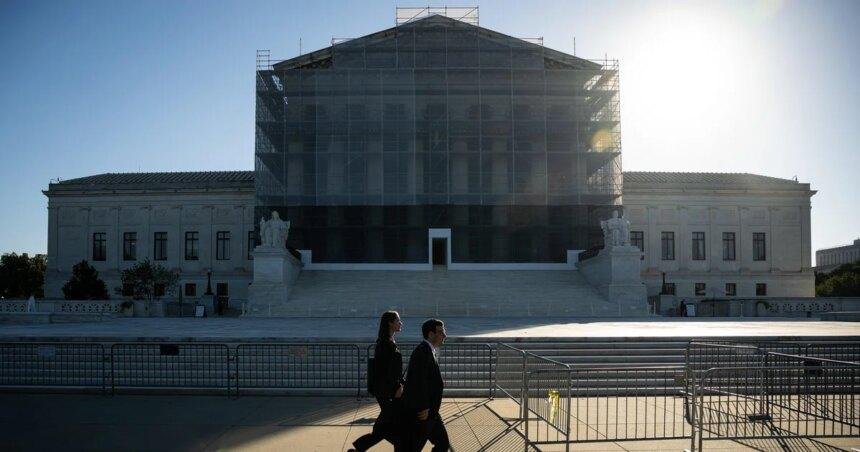Supreme Court Hears Challenge to Colorado’s Ban on Conversion Therapy for Minors
Washington, D.C. – The U.S. Supreme Court is currently deliberating a significant case that could reshape the landscape of mental health treatment for minors. On Tuesday, the justices heard arguments regarding a challenge to Colorado’s ban on “conversion therapy,” a controversial practice aimed at changing an individual’s sexual orientation or gender identity. The case centers on Kaley Chiles, a licensed counselor who contends that the state’s law infringes upon her constitutional rights.
Background of the Case
Kaley Chiles, a Christian counselor, initiated the legal challenge after Colorado enacted its Minor Conversion Therapy Law in 2019. This legislation prohibits mental health professionals from engaging in any practices that attempt to alter a minor’s sexual orientation or gender identity. The law specifically targets treatments that aim to “change behaviors or gender expressions” or to “eliminate or reduce sexual or romantic attraction” toward individuals of the same sex. Violators face penalties, including fines up to $5,000 and potential suspension or revocation of their licenses.
Chiles argues that the law effectively censors her ability to engage in discussions about gender dysphoria and sexual orientation with her young clients. She claims that her approach involves talk therapy aimed at helping minors who wish to “reduce or eliminate unwanted sexual attractions” or align their identities with their physical bodies. However, lower courts have consistently ruled against her, asserting that the law is a legitimate regulation of professional conduct.
Legal Arguments and Implications
During the oral arguments, Chiles’ legal team, represented by the conservative advocacy group Alliance Defending Freedom, emphasized that the law violates the Free Speech Clause of the First Amendment. They argue that it restricts meaningful conversations between counselors and clients on deeply personal issues. “The Free Speech Clause forbids the State from censoring mutual conversations on important topics,” the lawyers stated in their filings.
Chiles’ attorney, James Campbell, highlighted the ongoing “credible threat of enforcement” against her, suggesting that the state is actively investigating her practices. He contended that the Supreme Court has historically recognized one-on-one conversations as a form of speech deserving protection.
Conversely, Colorado state officials defended the law by citing a long-standing tradition of regulating healthcare practices to protect patients from potentially harmful treatments. They argue that the First Amendment does not grant professionals the right to deliver treatments that violate established standards of care. Colorado’s legal representatives pointed to the consensus among major medical associations that conversion therapy is not only ineffective but also linked to adverse mental health outcomes, including depression and anxiety.
The Broader Context
The debate surrounding conversion therapy is not new. Over the past decade, more than 20 states have enacted similar bans, reflecting a growing recognition of the potential harm associated with such practices. The American Psychological Association and other leading health organizations have consistently warned against conversion therapy, emphasizing that it lacks credible scientific support and can lead to severe psychological distress.
The case also touches on broader societal issues regarding gender identity and sexual orientation. As discussions around these topics become increasingly polarized, the Supreme Court’s decision could have far-reaching implications for mental health professionals and the rights of minors seeking support.
Political Dimensions
Adding another layer to the case, the Trump administration has expressed support for Chiles, urging the Supreme Court to reconsider the law. Solicitor General D. John Sauer argued that Colorado’s restrictions represent an attempt to silence one side of an ongoing debate within the mental health community. He emphasized that the state bears a significant burden to justify its content-based restrictions on protected speech.
Conclusion
As the Supreme Court prepares to issue its ruling, expected by late June or early July, the implications of this case extend beyond Colorado. A decision in favor of Chiles could undermine existing regulations designed to protect vulnerable populations from harmful practices, while a ruling upholding the ban would reinforce the state’s authority to regulate mental health care in the interest of public health. The outcome will likely resonate across the nation, influencing not only legal standards but also the ongoing discourse surrounding mental health treatment for minors.











